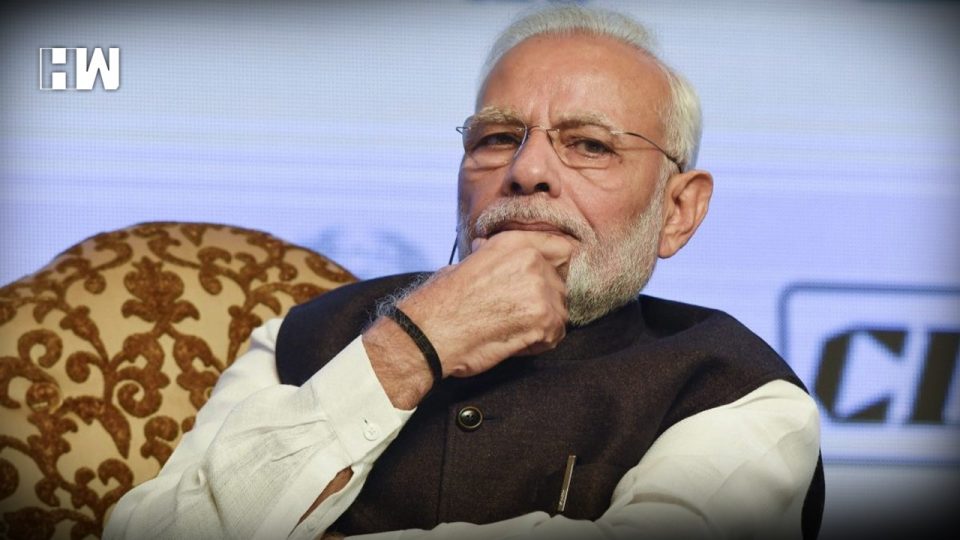The “Modi factor” which the saffron party believed won them elections did zilch in the recent elections.
Almost about five years ago, before BJP pocketed 282 Lok Sabha seats, the absolute majority was the Call-to-action of the saffron party’s star campaigner and PM candidate, Narendra Modi. Even during many more state election campaigns that followed, PM Modi asked the voters to give the BJP absolute majority. “The government of coalition is unstable and thus I appeal you to give absolute majority to the BJP,” he had said in one of the election rallies.
Fast forward to this date, PM Modi now seems to have realized that, though alliance governments have their own share of fallouts, it is the best way to get close to the victory, at least in the present scenario. The BJP is now trying to tame the rebellion among the alliance partners by conceding to their demands. Take for example the recent deal over seat share in Bihar alliance partners of NDA. After much debate and delay, finally, BJP conceded to the demand of JD(U) which was adamant on either more or equal seats as BJP. Both the parties will now contest on 17 seats each while the disgruntled LJP was given 6 seats to keep the flock together.

In other states as well, the BJP seems to have toned down its aggressive attitude and seems to be mending its way with the allies. Shivsena chief Uddhav Thackeray, best described as BJP’s, rather Modi’s frenemy echoed Congress President Rahul Gandhi’s “Chowkidar hi Chor Hai” in his Pandharpur rally. While the party insiders say the state leadership is angered over the remarks, the top leadership has asked its party workers to not get into any fracas with the Shivsena.
So, what made Modi’s BJP go from seeking absolute majority to seeking alliance partners who he considered a reason for the unstable government? What explains BJP going soft on allies especially after the party leadership’s arrogance that strained the ties? The 360-degree shift in Modi’s approach has become apparent after the BJP’s received a beating in the three electorally crucial Hindi Heartland states. In the five assembly elections that were considered a semi-final, the Congress snatched three states from BJP while two were won by regional parties. It was for the first time in last three years that BJP’s did not win even a single state and the loss was heavy.

As the Carl Sandburg quote goes, “Back of every mistaken venture and defeat is the laughter of wisdom, if you listen,” PM Modi too seems to have taken off the one-man show shoes and looking at alliances. But adjustment with the allies is not the only thing that suggests the change in PM’s behaviour.
His speeches and jibes do not elicit a response as they did in 2014. The popularity of the Social media savvy PM Modi too has dipped in the past year. Between January and April 2018, the median count of Gandhi’s retweets was consistently higher than the median retweet counts of prime minister Narendra Modi, as well as other prominent Indian politicians, according to a new study by the University of Michigan. An India Today- Mood of The Nation survey conducted in July this year also revealed that 46 per cent of the people surveyed said that Rahul Gandhi is the best alternative to Narendra Modi in 2019.

There are no two opinions that the Narendra Modi charm is no more. The “Modi factor” which the saffron party believed won them elections did zilch in the recent elections and the chances are it won’t work in the face of 2019 Lok Sabha elections too. While the 68 years old PM Modi is still the best campaigner the party has, his dampened aggression (or arrogance?) is visible. Modi’s reluctance to communicate to the press has added to his woes.
Learning a lesson from the defeat-development still sells more than “Ram Mandir” or “Ali vs Bajrang Bali”- the PM is now looking to return to the long-lost “Vikas” narrative of 2014. In just 10 days post the defeat, he has inaugurated a slew of multi-crores development projects in Raebareli, Odisha, Prayagraj, Mumbai and Pune. Will Modi be able to make “Vikas” his USP again? Well, it is quite uncertain but what is certain is Modi has definitely changed after the defeat.
As an independent media platform, we do not take advertisements from governments and corporate houses. It is you, our readers, who have supported us on our journey to do honest and unbiased journalism. Please contribute, so that we can continue to do the same in future.

